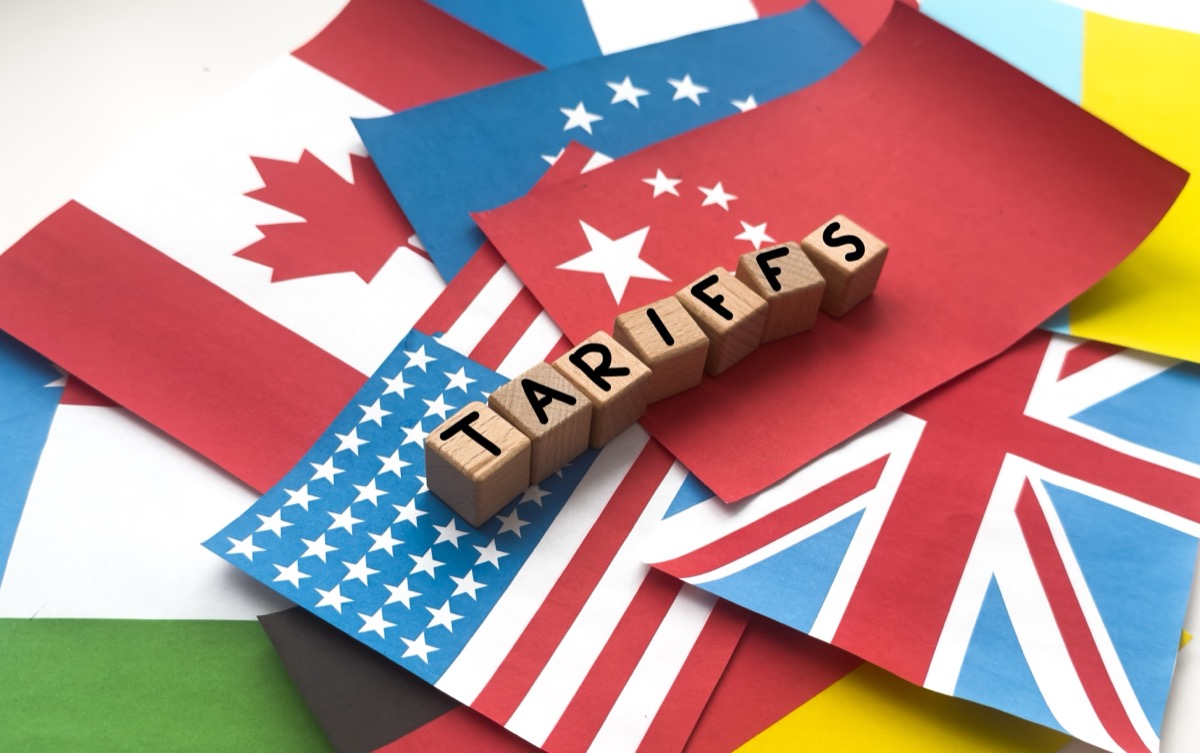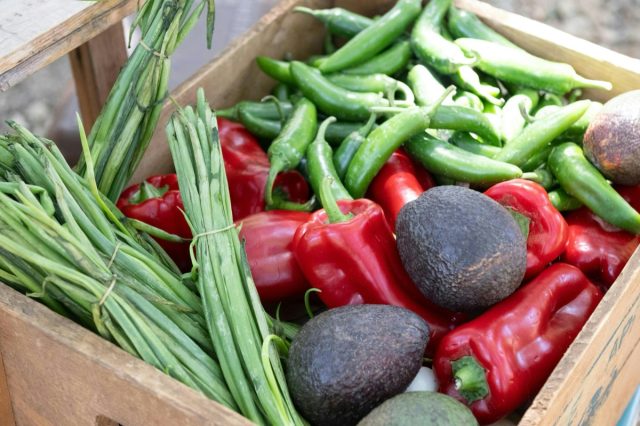7 Ways Trump’s Tariffs Could Spike Grocery Costs, Despite Rollback

The reciprocal tariffs levied by the United States against scores of countries (especially China) could still impact everyday groceries for American consumers—despite a temporary rollback announced this week. While the U.S. and China agreed to reduce some tariffs for 90 days while they negotiate, experts say the uncertainty and prior price shocks will likely continue to drive grocery bills higher in 2025. Some items made in the U.S. rely on imported materials, and even short-term disruptions have lasting effects on supply chains. Here are seven ways Trump’s tariffs could make your groceries more expensive.
Grocery Bills Could Rise by Nearly $5,000 Annually

According to a Yale Budget Lab report, tariffs could cause a 3% increase in grocery prices, resulting in $4,900 higher grocery expenses in 2025 for the average American family. “Food prices rise 2.6% in the short-run and stay 2.8% higher in the long-run,” the report says. “Fresh produce is initially 5.4% more expensive while stabilizing at 3.6% higher.” These price hikes will hit lower-income households the hardest.
Mother’s Day Brunch Costs Are Up Due to Tariffs

The stereotypical Sunday brunch on Mother’s Day could be more expensive this year, with menu prices up by 15% in some areas according to MarketWatch. Classic brunch items like coffee, eggs, and bacon are all more expensive right now for a number of factors, including how tariffs on Chinese imports impact kitchen equipment costs. “Instead of going to a white-tablecloth restaurant, they’ll go to a less fancy version,” says LendingTree consumer financial analyst Matt Schulz.
Coffee Prices May Increase Amid Tariff Uncertainty

Coffee prices are already sky-high but the situation could get worse with tariff uncertainty. According to a document seen by Reuters, Kraft Heinz, which sells Maxwell House, is asking suppliers for a 60-day notice before putting in any price hikes. It also asks for those hikes to be immediately removed if tariffs are dropped.
Beer Prices Could Rise Due to Aluminum Tariffs

Fourth of July celebrations could also be more expensive as beer prices go up, even for domestic brands. Why? Tariffs on aluminum imports may impact pricing on brands like Modelo, which rely on imported aluminum to package beer. So basically if the company uses imported aluminum, expect price hikes, according to Business Insider.
Imported Produce Prices Are Increasing

The U.S. imports a huge amount of fruit and vegetables from Mexico and Canada, and the long-term impact of tariffs on those trading partners could mean produce will get more expensive. Fresh produce prices could rise and food prices overall could go up by 5.4%. Even avocados, which are not subject to tariffs right now, are more expensive, shoppers say.
Dairy and Cheese Prices Could Rise

Your favorite imported Brie cheese could become unaffordable thanks to tariffs levied against countries like France and Holland, which export a lot of cheese to the U.S. German and English cheese such as fancy cheddar could also become more expensive, especially if they’re bought from smaller specialty stores.
Overall Grocery Bills Are Likely to Increase

The cumulative effect of tariffs may cause a spike in grocery costs across the board, even for basic staple items such as flour and milk. USA Today points out 15% of the U.S. food supply is imported, including 32% of fresh vegetables, 55% of fresh fruit, and 94% of seafood, according to the Consumer Federation of America, and many items such as coffee are not made in the U.S. at all (except Hawaii). “For consumers, this can mean added difficulties in managing a food budget. For food companies, this means havoc on supply chains that could lead to more food waste and more food safety risk,” says Thomas Gremillion, director of food policy at The Consumer Federation of America.
Note: Although the U.S. and China agreed on May 12 to temporarily reduce tariffs for 90 days, many retailers and manufacturers are still grappling with the economic shockwaves of previous tariff spikes—and say uncertainty continues to drive up costs.